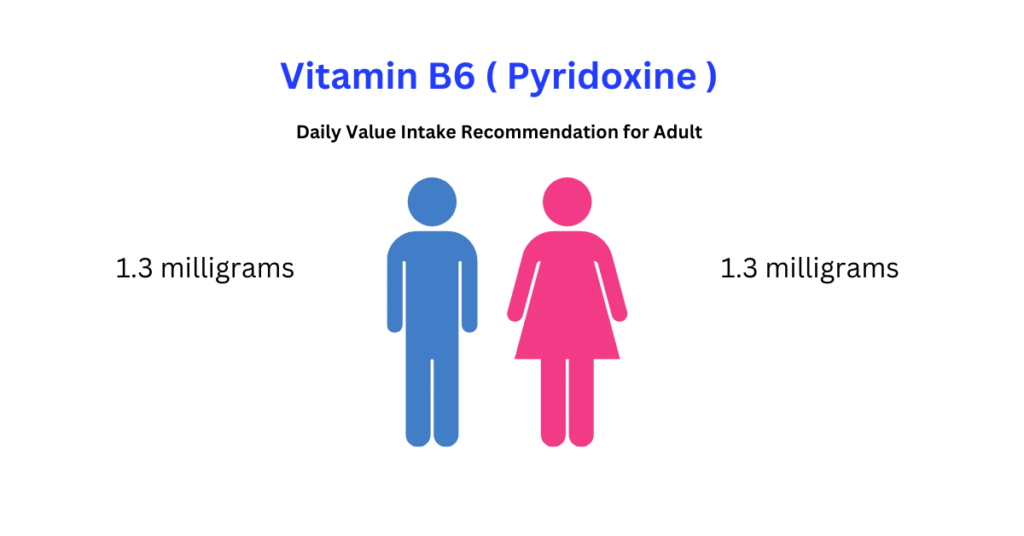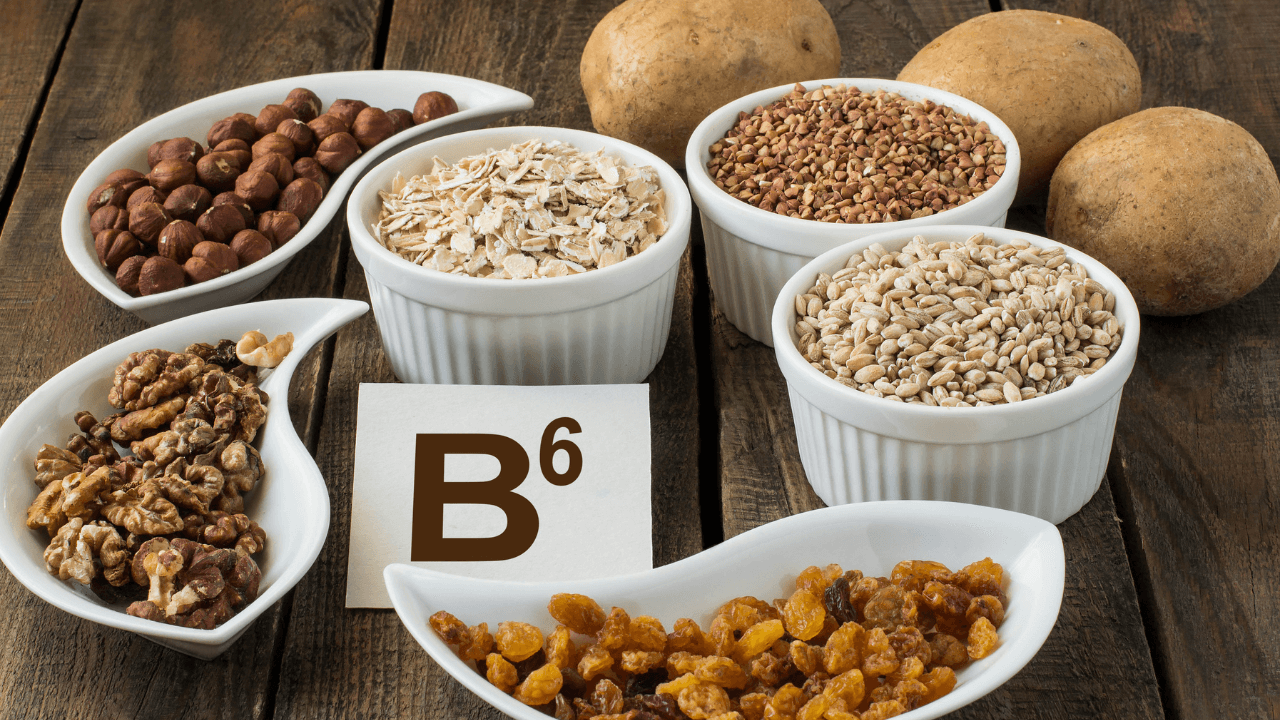Step into the enriching world of Vitamin B6 (Pyridoxine), an essential nutrient that is pivotal in various critical bodily functions, including metabolism and nerve health. This comprehensive guide aims to shed light on the benefits of Vitamin B6, explore the range of Vitamin B6 foods, understand Vitamin B6 deficiency, and discuss the importance of Vitamin B6 supplements. Ensuring adequate intake of this vitamin is key to sustaining a healthy and balanced life.
Vitamin B6: Powering Your Body’s Metabolism and Nerve Function
Vitamin B6 is crucial for properly functioning enzymes in the body and aids in metabolic processes. It also plays a significant role in cognitive development and immune system maintenance.

Top Dietary Sources of Vitamin B6
For maintaining proper Vitamin B6 levels, including these rich food sources in your diet is essential:
- Chickpeas (1/2 cup, cooked): Approximately 0.5 milligrams
- Salmon (3 ounces, cooked): Approximately 0.6 milligrams
- Chicken breast (3 ounces, cooked): Approximately 0.5 milligrams
- Turkey (3 ounces, cooked): Approximately 0.5 milligrams
- Potatoes (1 medium, cooked): Approximately 0.7 milligrams
- Sunflower seeds (1 ounce): Approximately 0.3 milligrams
- Avocado (1 medium): Approximately 0.4 milligrams
- Spinach (1/2 cup, cooked): Approximately 0.2 milligrams
- Bananas (1 medium): Approximately 0.4 milligrams
- Pistachios (1 ounce): Approximately 0.3 milligrams
Addressing Vitamin B6 Deficiency and the Role of Supplements
While Vitamin B6 deficiency is uncommon, certain groups are at higher risk, such as the elderly or those with specific medical conditions. Symptoms of deficiency include anemia, skin conditions like dermatitis, and neurological issues [1]. In such cases, healthcare professionals may recommend Vitamin B6 supplements to ensure adequate nutrient levels.
Optimizing Vitamin B6 Absorption and Understanding Drug Interactions
Various factors, including the use of certain medications like anticonvulsants and antibiotics, can influence the absorption of Vitamin B6. It’s important to discuss potential drug-nutrient interactions with a healthcare provider, especially if you’re undergoing medical treatment that may impact Vitamin B6 levels.
The Health Benefits of Vitamin B6
The niacin benefits of Vitamin B6 are extensive and include:
- Immune System Support: Vitamin B6 plays a role in supporting the immune system’s response.
- Cognitive Health: It is crucial for brain development and function.
- Heart Health: Vitamin B6 can help in reducing heart disease risk.
- Mood Regulation: It’s known to aid in the production of hormones that influence mood.
- Promotes Healthy Skin: Vitamin B6 is involved in treating a range of skin conditions, including eczema and acne.
You might be interested in: Vitamin B3 (Niacin): A Key Nutrient for Energy and Health
Conclusion:
Understanding the importance of Vitamin B6 (Pyridoxine) in your diet and lifestyle is essential for health optimization. From its role in metabolism and nerve function to its myriad of health benefits, Vitamin B6 is indeed a cornerstone of nutritional well-being. However, Incorporating Vitamin B6 rich foods into your diet and considering supplementation when necessary can help ensure your body functions at its best.






